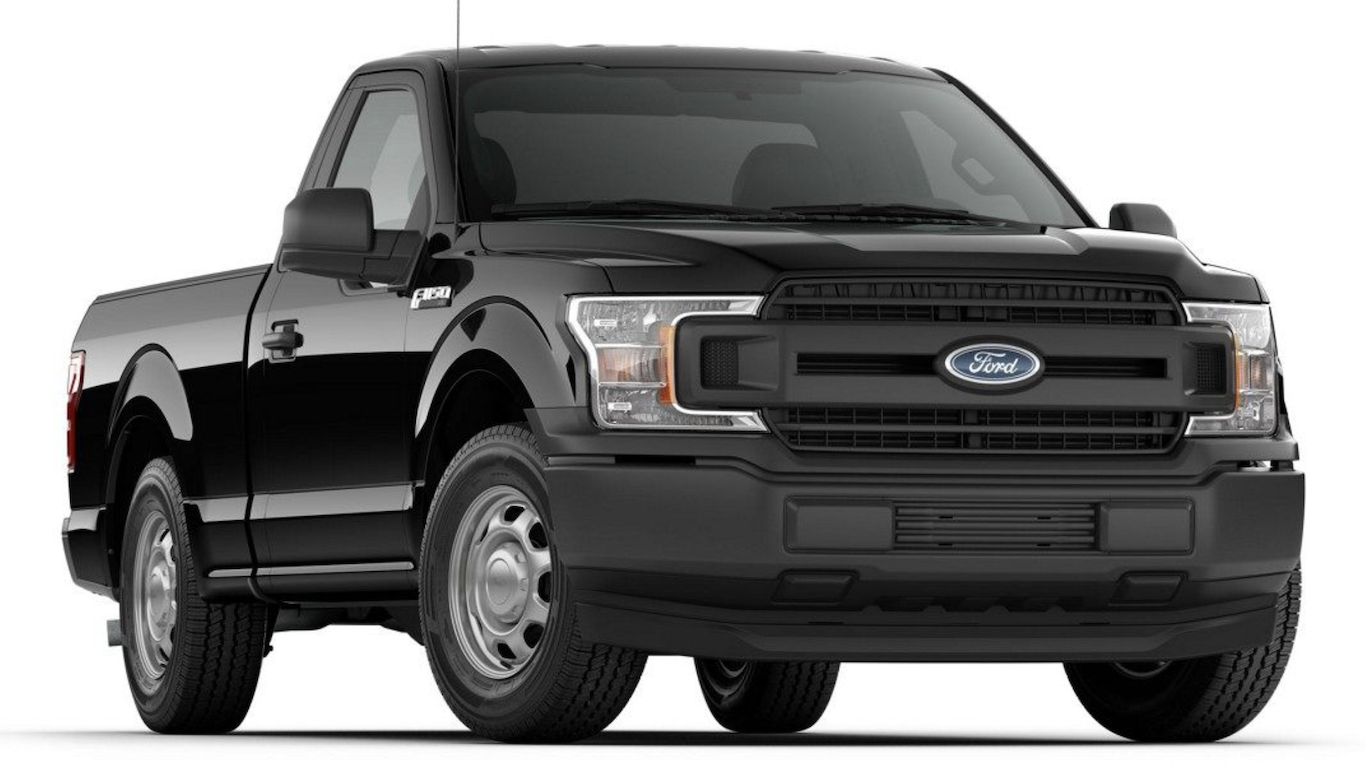Cars and Drivers
Ford F-150, Nissan Titan, Ram 1500 Best on Crash Safety Test

Published:
Last Updated:

Modern cars, light trucks and sport utility vehicles are all built with safety cages around the passenger compartment that are designed to minimize the effects of head-on collisions and crashes where 40% of the vehicle’s front hits an obstruction. In such crashes, the cages do their jobs well, according to the Insurance Institute for Highway Safety (IIHS).
Where many pickups have struggled is on a test called the small-overlap frontal test where just 25% of the vehicle’s front hits an obstruction. Most pickups perform well in a driver-side small overlap test, and significantly less well when the test is performed on the passenger side of the truck.
In its most recent round of testing on crew-cab (four-door) pickup trucks, IIHS gave two pickups Good ratings (the highest) for their ability to maintain their structures and protect the passengers in the small-overlap testing. These two were the Ford F-150 and the Nissan Titan, both full-sized pickups. The full-size Ram 1500 earned a Good rating on this test late last year on trucks built after July 2018.
This video from IIHS shows the results of a passenger-side small-overlap frontal crash.
IIHS has rated 11 crew-cab pickups on the passenger-side test, four full-size trucks and seven midsize trucks. Only the Ford, Nissan and Ram models achieved a Good rating while one, the Toyota Tundra, received a Poor rating.
Of the other trucks tested, two — the full-sized Honda Ridgeline and the midsize Toyota Tacoma — were rated Acceptable. The Chevrolet Colorado, GMC Canyon, Nissan Frontier, Chevrolet Silverado 1500 and GMC Sierra 1500 received Marginal ratings.
What’s the difference between a Good and a Poor rating? Here’s IIHS’s description of the test results on the F-150 and the Toyota Tundra:
The Ford F-150 was the best performer in the passenger-side test. The structure held up well with maximum intrusion of 5 inches at the rightmost section of the toepan. The seat belts and airbags worked well together to control the movement of the passenger and driver dummies, and neither dummy recorded any potential injuries.
The Tundra, in contrast, was seriously compromised by intruding structure. Maximum intrusion, also at the rightmost part of the toepan, measured 15 inches. There was also intrusion of more than a foot at the lower door hinge pillar. The passenger dummy’s head hit the grab handle attached to the A-pillar as the A-pillar intruded into the passenger’s space. Measures taken from the dummy indicate that injuries to the right lower leg would be likely in a crash of this severity, and injuries to the right hip would be possible.
The IIHS report and ratings on pickups for both driver-side and passenger side small-frontal crashes are available at the organization’s website.
Thank you for reading! Have some feedback for us?
Contact the 24/7 Wall St. editorial team.